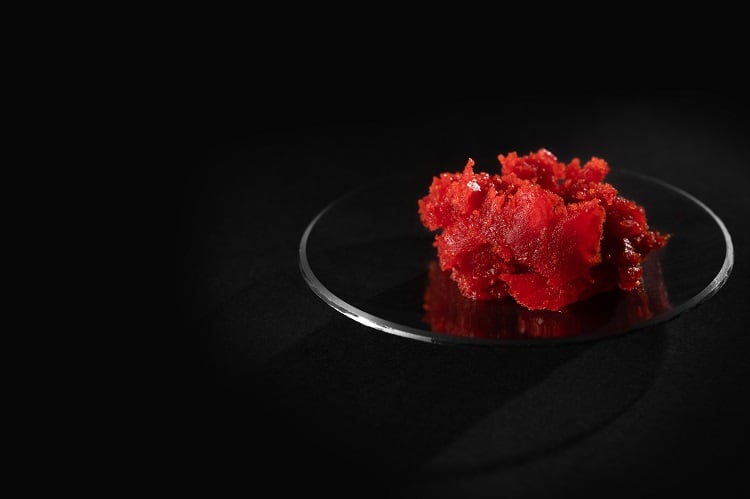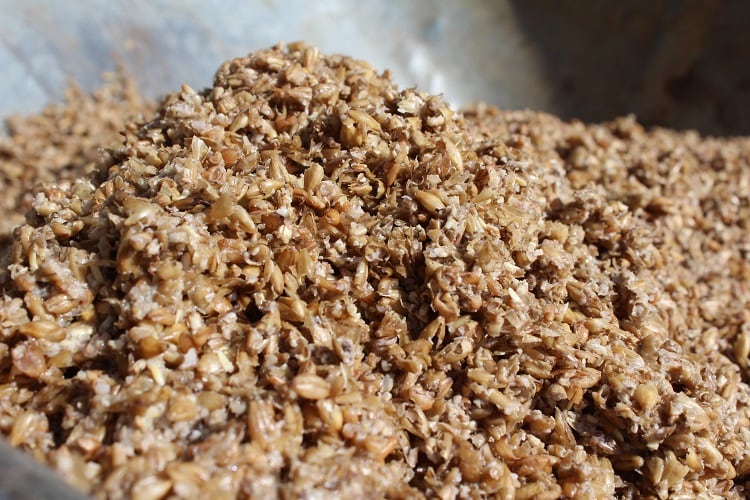Replicating fats in plant-based meat is an important part of getting its texture right. A range of ingredients, including a variety of oils and even coconut fat, can be used to do this.
Substituting fat in vegan products “allows us to create plant-based alternatives that closely resemble the taste and texture of traditional animal-based products,” Sergio Pinto, CEO of Brazil-based ingredients company Cellva Ingredients, told FoodNavigator. “This is crucial for consumer acceptance and adoption of plant-based diets.”
Creating plant-based fats
Creating plant-based substitutes for fat often requires a range of ingredients. “We use a combination of plant-based ingredients to create our fat, starting from a single swine cell. This includes a blend of vegetable oils, emulsifiers, and other plant-based components that closely mimic the texture and mouthfeel of traditional animal fats,” Cellva’s Pinto told us.
Texture is a pivotal part of the role of a fat substitute. “Our fat substitute plays a pivotal role in improving the texture of plant-based meat. It's designed to replicate the mouthfeel, juiciness, and succulence of traditional meat, which is often attributed to the fats found in animal products.”
Another major consideration is sustainability. Of course, as a significant reason for the development of plant-based meat in the first place is animal meat’s negative impact on the environment and link to high greenhouse gas emissions, it’s important that the substitute for fat is sustainable as well.
ÄIO, an Estonia-based startup focusing on creating substitutes for palm oil and animal fats, uses its encapsulated oils and fats as ingredients to substitute animal fat. It avoids palm oil as stringently as animal-based fats in its products.
“As palm oil is really a "no-go" them most of the product developers as well as we are using in our plant-based experiments rapeseed oil in combination with deodorized coconut fat”, Mary-Liis Kütt, Chief Innovation Officer at ÄIO, told FoodNavigator.
“These traditional vegetable oils are mostly used as a control. For the novel product development we are using our own produced encapsulated oil as well as RedOil and Buttery fat.”
Finding a replacement for palm oil, which when not sustainably sourced can have a negative impact on the environment, is as central to ÄIO’s goals as replacing animal fat itself.
“Even though palm oil is less and less favoured by customers, the food industry still uses it. So far, there hasn't been a comparable replacement that fulfils all techno functional properties of palm oil.
“And product developers are smart; while the ‘palm oil’ as an ingredient name can be wisely hidden behind ‘mixture of mono-, di- and triglycerides’.
“Therefore, the food industry is seeking alternatives and replacements for the fats to provide the highest quality and best performance in the vegan recipes. And I think ÄIO is able to fulfil these criteria.”
The texture is improved by the products, Kütt told us. “ÄIO's encapsulated oil improves the texture and mouthfeel, for example in plant-based patty. It also keeps the fats in, while they do not leak out during frying. The RedOil and Buttery have similar properties than conventional vegetable oils and animal fats, which is beneficial to really mimic the current meat and dairy alternatives.”
Nutritional ‘fats’
Of course, while we need fat in our diet, some animal fats, such as saturated fat, have been linked to heart disease and other health conditions.
Fat substitutes in plant-based products provide the opportunity to change this. “Our fat substitute is crafted with nutritional balance in mind,” Cellva’s Pinto told us.
“We focus on using plant-based nutrients that provide essential fatty acids, such as omega-3 and omega-6, while keeping saturated fats to a minimum. This helps ensure that the nutritional profile of plant-based meat products using our fat substitute is in line with modern dietary recommendations.”
ÄIO, too, focuses on nutrition in its fats and encapsulated oils. “Encapsulated oil has a comprehensive fatty acid profile including Omega-3 fatty acids,” ÄIO’s Kütt told us.
“Besides lipid part, encapsulated oil also contains essential amino acids, vitamins, minerals and fibre. A true multicomponent ingredient for novel food applications. If we analyse the chemical profile of ÄIO's Reoil and buttery fat, then the carotenoids improve the antioxidative activity of the ingredients.”




